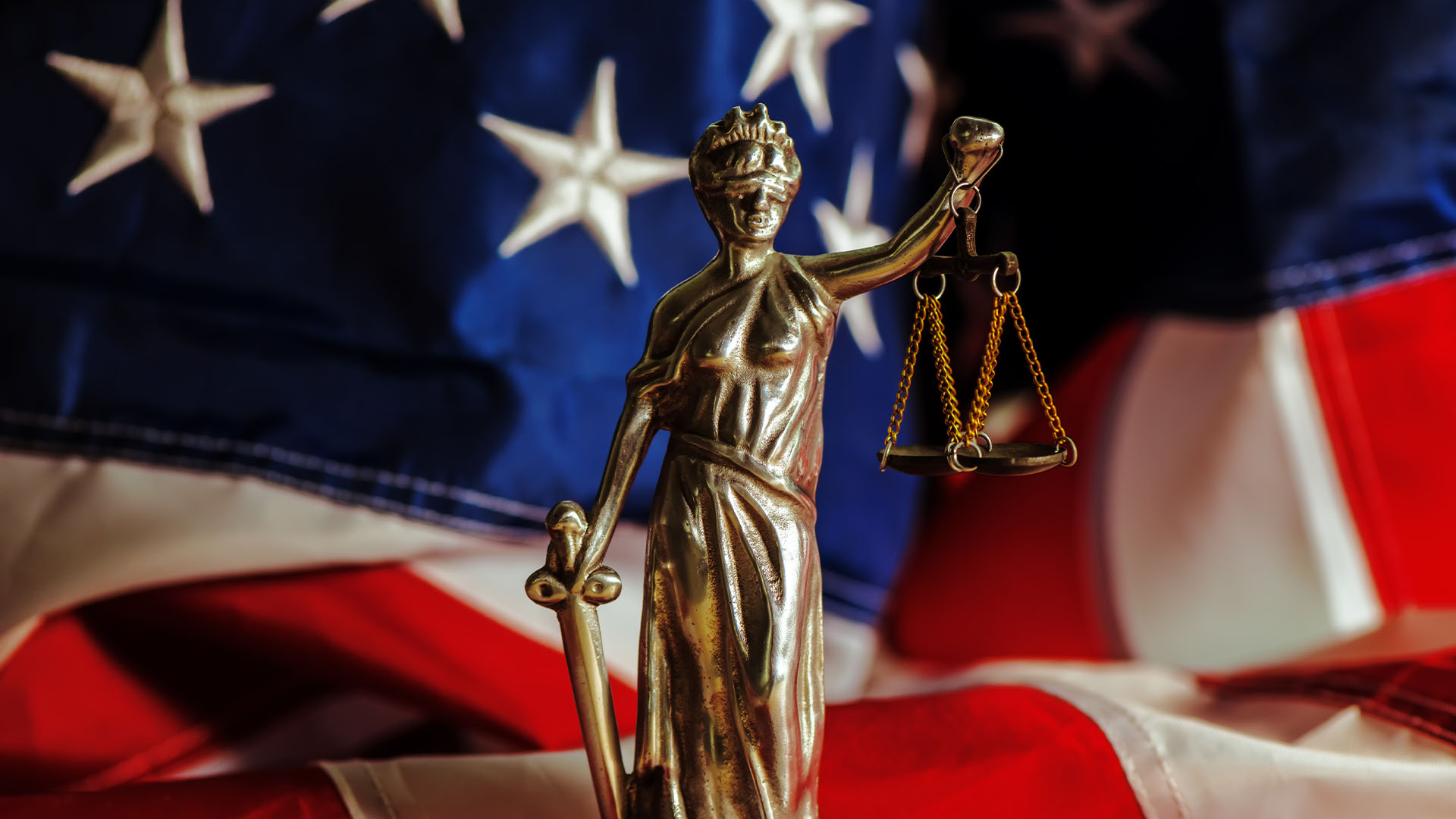Former Chief Justice William Rehnquist would be proud. In the weeks since the election, the president has waged a baseless legal battle to overturn its legitimate results, and federal- and state-court judges have acted admirably, faithfully, and impartially, discharging all the duties of their office despite intense public pressure from Donald Trump and his supporters. Rehnquist once referred to the independence of the American judiciary as one of the “crown jewels” of our system of government. So far, these judges have proved him right.
During my nearly two decades working in the federal judiciary, including five years in the Counselor’s Office at the Supreme Court, we hosted hundreds of lawyers, government officials, and jurists from around the world who came to the United States to see firsthand what they considered to be the gold standard of judicial systems. For many of these visitors, the Supreme Court building itself was a symbol of justice that inspired them to return to their home country with a renewed commitment to do, as is prominently etched into the building’s west pediment, “equal justice under law.”
With lifetime appointments, protected salaries, and high standards for impeachment, federal judges are largely insulated from the pressure that politicians and others can bring to bear in attempts to coerce rulings in their favor. The federal judiciary’s independence also has been strengthened by taking responsibility for its own administration, rather than relying on various executive-branch departments, as it did until the early 20th century. Perhaps most importantly, the courts enjoy a relatively high degree of public trust. For decades, America’s judiciary has been the most trusted of the three branches of government. Judiciaries elsewhere do not enjoy that same trust and independence.
Earlier this year, Russia’s constitutional court rubber-stamped a constitutional amendment allowing President Vladimir Putin to remain in power until 2036—despite the protests of more than 350 lawyers, journalists, and scientists who called the Putin-backed scheme an unlawful, anti-constitutional coup. In Turkey, under the authoritarian President Recep Tayyip Erdoğan, there has been a concerted attack on the independence of the judiciary, leading to a purge of those not seen as loyal to the Erdoğan regime. Egypt’s judiciary has been deemed by international observers a tool of repression in that country. And in Hong Kong, China’s Communist Party has begun cracking down on that city’s independent judiciary.
By contrast, the hallmarks of the U.S. judicial system have been on impressive display in response to the Trump campaign’s recent attacks. In Pennsylvania, Judge Matthew Brann, a former Republican Party official appointed by President Barack Obama, listened to arguments from Trump’s lawyers that the results of the presidential election in the state should be overturned, before ruling that Trump had provided no evidence of voter fraud in Pennsylvania. The Third Circuit Court of Appeals, in an opinion written by Judge Stephanos Bibas, a Trump-appointed judge, upheld Brann’s decision. In Michigan, State Court Judge Timothy M. Kenny rejected Trump allies’ voter-fraud claims, ruling that they had no evidentiary basis and were rife with speculation and guesswork about sinister motives. Collectively, these judges have dismissed Trump’s undemocratic attempt to overturn the will of the people.
Trump’s initial litigation strategy—to retroactively suppress the votes of those, mostly minorities, who likely voted for Joe Biden—appears now to have failed in the courts. A fallback strategy, confirmed by the president on Twitter, has been to delay certification of key states’ election results so the decision would be left to the House of Representatives. Under that scenario, each state would get one vote decided by a majority vote of the state’s congressional delegation. At this time, more than half of the delegations are majority Republican, so the House presumably would name Trump the winner.
As with Trump’s effort to suppress votes, the courts have rejected his effort to render them pawns, this time in his brazen scheme to delay certification. The Third Circuit’s Judge Bibas scolded Trump for engaging in “repetitive litigation.” In Georgia, Judge Steven Grimberg, another Trump appointee, warned that the effort to delay certification “would breed confusion and disenfranchisement” with no basis in fact or law. Going forward, judges should impress upon lawyers that Rule 11 of the Federal Rules of Civil Procedure allows judges to impose sanctions on any attorney who submits pleadings for an improper purpose or that contain frivolous arguments or have no evidentiary support. While Rule 11 sanctions are rare, these Trump-initiated cases are not run-of-the-mill civil matters—they are an assault on democracy.
To be sure, many Americans have reasonable concerns about the country’s judiciary. Critics of the federal courts have called for a mandatory retirement age or term limits, particularly for Supreme Court justices. Some observers believe that the politicization of judicial elections for state courts undermines their integrity. But despite any weaknesses, the courts have performed admirably in this most crucial hour.
We may not have seen the end of Trump’s efforts to overturn the election. But Americans have reason to be hopeful, in this election and those to come, that we can avoid the failures of other countries and that the judges who hear the cases will remain faithful to their judicial oaths, their commitment to the Constitution, and the rule of law. In a world teetering between democracy and authoritarianism, that is a remarkable and welcome achievement.
This story is part of the project “The Battle for the Constitution,” in partnership with the National Constitution Center.


